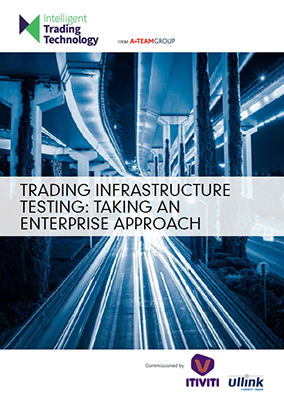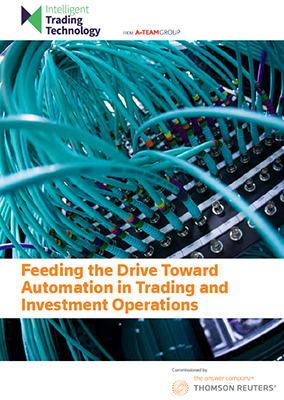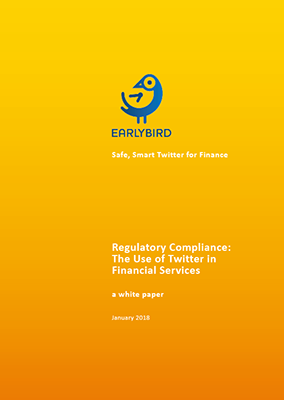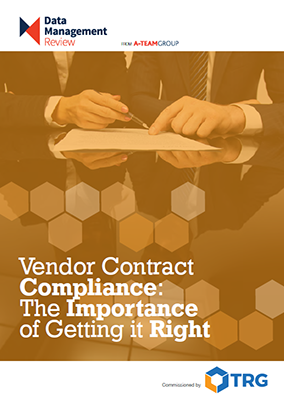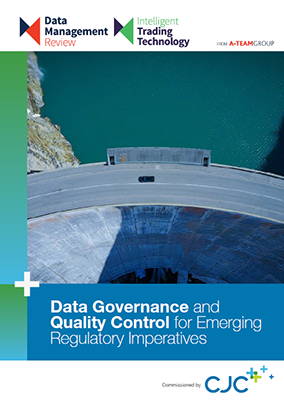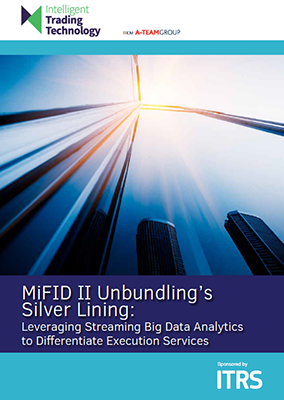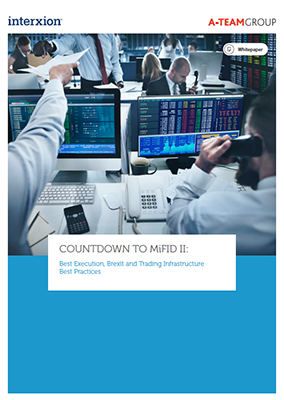TradingTech Insight White Paper
MiFID II: Industrialising the Response Using UL BRIDGE
Many firms within the scope of Markets in Financial Instruments Directive II (MiFID II) struggled to meet the regulation’s deadline of January 3, 2018 and are now waking up to the fact that many of the processes put in place for implementation day are not sustainable. To achieve and maintain MiFID II compliance over time...
Trading Infrastructure Testing: Taking an Enterprise Approach
Over time, trading operations have become complex networks of different applications using diverse technologies tied together into an overall trading infrastructure. Testing has evolved in a similar ad hoc way and, as a result, firms often lack a coherent testing strategy. This could leave them open to trading errors on the scale that pushed Knight...
Feeding the Drive Toward Automation in Trading and Investment Operations
As financial institutions continue to move toward automation, the need to feed systems with accurate and timely data is critical. Consistency of data throughout the transaction workflow is also essential, meaning financial institutions need to choose their data sources carefully. Based on an A-Team Group survey, and sponsored by Thomson Reuters, this paper considers drivers...
Regulatory Compliance: The Use of Twitter in Financial Services
Twitter has emerged as a source of market-moving information. But it’s difficult to get Twitter delivered to your trading desk, for a variety of reasons, ranging from concerns about market abuse, to the proliferation of fake news and the potential risk of reputational damage. By banning Twitter, trading firm management may be seeking to avoid...
Vendor Contract Compliance: The Importance of Getting it Right
Understanding in-house consumption of vendor data and ensuring compliance with multiple contracts for market data and other information can be challenging, particularly for financial institutions managing large volumes of contract clauses across hundreds of suppliers. The contract compliance problem often revolves around institutions’ lack of transparency into actual data usage of information services they pay...
Data Governance and Quality Control for Emerging Regulatory Imperatives
Impending regulations, following recent price manipulation investigations, will require trading firms to have new data governance and quality controls in place. A new benchmarking study by CJC, in association with A-Team Group, conducted amongst professionals within major Tier 1 and Tier 2 sell side institutions, explores the data governance demands posed by new and emerging...
MiFID II: Setting a Mobile Policy for Compliance and Trading Business
Markets in Financial Instruments Directive II (MiFID II) requires firms to record all trading-related electronic and voice communication. This includes recording communications made using mobile devices, whether they are firm or employee owned. The directive also extends previous requirements to record and store communications that resulted in a trade, to record and store communications that...
MiFID II: Time for Action
As the January 3, 2018 compliance deadline for Markets in Financial Instruments Directive II (MiFID II) approaches, trading businesses within the scope of the regulation must address outstanding technology issues around elements such as transparency, best execution, algorithmic trading, high frequency trading, time synchronisation and systematic internalisation. This White Paper, sponsored by Itiviti, discusses MiFID...
MiFID II Unbundling’s Silver Lining: Leveraging Streaming Big Data Analytics to Differentiate Execution Services
European MiFID II regulation’s unbundling of broker research from execution services raises the question of how execution service providers can differentiate what they offer once research is no longer part of their relationship with buy-side clients. Best-execution provisions and the performance of brokers’ platforms could become the primary differentiator. This raises a follow-up question –...
Countdown To MiFID II: Best Execution, Brexit and Trading Infrastructure Best Practices
The events of 2016 have muddied the waters for financial institutions operating in Europe that need to figure out how planning for possible outcomes of Brexit will in turn affect compliance with European MiFID II regulation taking effect in January 2018. While it is widely recognised that firms will have to make major changes to...



